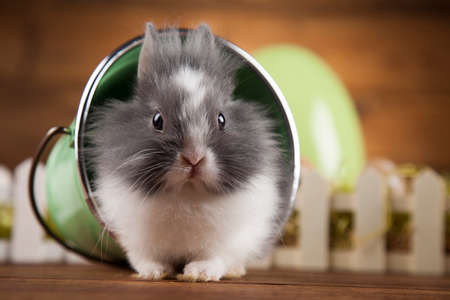1. Introduction: Feeding Guinea Pigs Responsibly in the UK
When it comes to caring for guinea pigs, their diet is absolutely crucial to their wellbeing and happiness. In the UK, where weather and local produce can influence our choices, understanding what and how to feed your small companion is especially important. Guinea pigs are herbivores with unique dietary requirements, most notably a constant need for vitamin C and a high-fibre intake. A balanced diet helps prevent common health issues such as dental problems, scurvy, and obesity—ailments that are sadly prevalent when feeding guidelines arent followed. Moreover, UK-specific factors such as the availability of fresh forage, locally sourced vegetables, and seasonally appropriate foods play an essential role in shaping the best nutritional plan for your guinea pig. By learning the feeding do’s and don’ts tailored to British conditions, you’re not only ensuring your guinea pig’s health but also fostering a happier, more active pet. This guide will walk you through practical advice and culturally relevant tips to help every UK small pet lover provide top-notch nutrition for their furry friend.
Essential Components of a Balanced Guinea Pig Diet
To ensure your guinea pig thrives, it’s crucial to provide a diet that meets their unique nutritional needs. In the UK, we’re fortunate to have access to a range of high-quality hays and fresh produce that can form the foundation of a healthy daily menu for your furry friend.
The Core Elements: What Every Guinea Pig Needs Daily
Guinea pigs require a balance of fibre, vitamin C, and fresh water every day. Here’s a detailed look at what should be included:
| Food Type | British Examples | Serving Tips |
|---|---|---|
| Hay (80% of diet) | Timothy hay, Meadow hay, Orchard grass (all widely available from UK pet shops and farms) | Offer unlimited amounts; ensure hay is fresh and dust-free for healthy digestion and dental wear. |
| Fresh Vegetables (15% of diet) | Cucumber, bell peppers, kale, spring greens, romaine lettuce, coriander, broccoli (all commonly found in UK supermarkets) | Rotate varieties daily; avoid iceberg lettuce due to low nutrients; wash thoroughly to remove pesticides. |
| Pellets (5% of diet) | High-fibre guinea pig pellets with added vitamin C (look for UK brands with no added seeds or dried fruit) | Offer 1-2 tablespoons per day per piggy; check expiry dates to ensure vitamin C potency. |
| Fresh Water | Treated tap water or filtered water | Change daily; use a bottle or heavy ceramic bowl to prevent tipping. |
The Importance of Vitamin C
Unlike many small pets, guinea pigs cannot produce their own vitamin C. British weather means local veg like kale and bell peppers are excellent sources year-round. Supplement with vitamin C-rich veggies daily, but avoid adding supplements directly to water as this can affect taste and reduce intake.
Avoid These Common Mistakes:
- No muesli-style mixes – these encourage selective feeding and are often high in sugar.
- Avoid potatoes, onions, rhubarb leaves, and any houseplants – all are toxic to guinea pigs.
- No sugary treats or human food – stick strictly to safe vegetables and hay-based options.
By following these UK-specific guidelines, you’ll give your guinea pig the best chance at a long, happy life filled with healthy munching!
![]()
3. Feeding Do’s: Best Practices for Happy, Healthy Piggies
Provide Unlimited Fresh Hay
Hay is the cornerstone of a guinea pig’s diet. Always ensure your piggies have unlimited access to high-quality Timothy hay or meadow hay, both of which are widely available in the UK. Hay helps with digestion and keeps their teeth in top condition.
Offer Daily Fresh Vegetables
Every day, serve a variety of fresh, washed vegetables such as bell peppers, spring greens, kale, and romaine lettuce. Rotate options to provide different nutrients. Remember to introduce new foods gradually to avoid upsetting their tummies.
Choose Local Treats Wisely
For special treats, opt for UK-grown veggies and herbs like dandelion leaves, coriander (cilantro), parsley, or small slices of cucumber. Avoid sugary fruits except for occasional nibbles—think a sliver of apple or strawberry once in a while.
Keep Water Fresh and Clean
Your guinea pigs need constant access to clean, fresh water. Use a water bottle with a metal spout or a heavy ceramic bowl that can’t be tipped over. Change the water daily and check regularly for blockages or contamination.
Establish Safe Feeding Routines
Create a feeding schedule with morning and evening veggie servings alongside their constant hay supply. Place food in clean ceramic dishes and remove uneaten fresh food within a few hours to prevent spoilage.
Monitor Their Health Through Feeding
Always observe your guinea pigs during mealtimes. Healthy piggies will be eager eaters! If you notice changes in appetite or droppings, consult an exotics-savvy vet promptly. Consistent routines and proper nutrition help your little companions thrive in your British home.
4. Feeding Don’ts: Common Mistakes to Avoid
Feeding guinea pigs in the UK comes with its own set of pitfalls, especially given our unique range of garden plants, household foods, and common misconceptions. To keep your furry friends safe and healthy, it’s crucial to be aware of what not to feed them. Below is a handy guide highlighting foods and habits you should always avoid.
Foods to Avoid: Unsafe for Guinea Pigs
| Food/Plant | Reason to Avoid |
|---|---|
| Potatoes (including peels) | Contains solanine, which is toxic to guinea pigs. |
| Onions, Garlic, Shallots | Can cause digestive issues and are poisonous. |
| Daffodil bulbs and leaves (common in UK gardens) | Highly toxic; ingestion can be fatal. |
| Foxglove, Rhubarb leaves, Yew | Toxic plants often found in British gardens. |
| Lettuce (Iceberg variety) | Low nutritional value and may cause diarrhoea. |
| Bread, Biscuits, Crisps | No nutritional benefit and may cause bloating. |
| Dairy Products (cheese, milk, yoghurt) | Guinea pigs are lactose intolerant. |
| Chocolate & Sweets | Toxic and can cause serious health issues. |
| Meat or Fish products | Guinea pigs are strict herbivores. |
| Avocado | Contains persin, which is harmful to guinea pigs. |
| Garden grass treated with weedkiller or fertiliser | Chemicals can be lethal if ingested. |
| Mushrooms (wild or shop-bought) | Poorly tolerated; some varieties are toxic. |
Dangerous Habits to Watch Out For
- Feeding Lawn Clippings: Never give freshly cut grass from lawnmowers as it ferments quickly and can upset their digestion.
- Sourcing Wild Plants: Avoid picking wild plants unless you’re 100% sure they’re safe. Many British wildflowers are toxic for guinea pigs.
- Sugar-laden Treats: Pet shop “treat sticks” often contain honey, seeds, or nuts – all unsuitable for guinea pigs.
- Lack of Hay: Skipping hay can lead to dental and digestive issues; hay should make up the bulk of their diet at all times.
Quick Reference: Unsafe Foods & Items in a UK Home or Garden
| Item Found At Home/Garden | Why It’s Unsafe |
|---|---|
| Tulip bulbs/leaves (garden borders) | Toxic if ingested by guinea pigs. |
| Pesticide-treated vegetables (homegrown or shop-bought) | Chemical residues can harm small pets. |
| Citrus fruits (oranges, lemons) | The acidity can upset their stomachs and damage mouth tissue. |
Remember:
Avoiding these common mistakes will help ensure your guinea pig stays happy and healthy. If you’re ever unsure about a food or plant, consult your local vet or reputable UK-based guinea pig care resources before introducing anything new into their diet.
5. Seasonal and Local Treats: Safe British Veg and Forage
Keeping your guinea pig’s diet interesting and healthy is easy when you use the best of what’s in season and local to the UK. Offering fresh, safe treats not only brings variety but also encourages natural foraging behaviours, boosting both physical and mental wellbeing. However, knowing what to pick and what to avoid is essential.
Why Choose Seasonal and Local?
Seasonal British vegetables are often fresher, more nutritious, and less likely to contain harmful chemicals compared to imported produce. Buying local supports UK farmers and reduces your pets environmental pawprint. Plus, your guinea pig will love the taste of just-picked greens!
Safe British Veg for Guinea Pigs
- Spring: Dandelion leaves (from untreated lawns), young grass, rocket, spring greens
- Summer: Cucumber, courgette, small amounts of strawberry tops, nasturtium leaves and flowers
- Autumn: Kale (in moderation), bell pepper, carrot tops (not the root), broccoli leaves
- Winter: Savoy cabbage (sparingly), parsley, celery leaves
Avoid onions, potatoes, rhubarb, tomato leaves, iceberg lettuce, and anything from the allium family as these can be toxic.
Foraging Guidelines in the UK
If you’re lucky enough to have access to a garden or safe wild spaces, you can forage some of your guinea pig’s food—just make sure it’s chemical-free and well away from roads or areas visited by dogs. Great options include:
- Dandelion leaves and flowers
- Clover (white or red) – leaves and flowers in moderation
- Plantain (broadleaf or ribwort)
- Chickweed
- Sow thistle
What to Avoid While Foraging
Never pick plants if you’re not 100% certain of their identity. Avoid buttercups, foxgloves, yew, ragwort, bluebells, and daffodils as these are poisonous to guinea pigs. Also steer clear of grass cuttings as they ferment quickly and can cause digestive upsets.
How Much Is Too Much?
Treats—even healthy ones—should make up no more than 10% of your guinea pig’s daily food intake. Always introduce new foods gradually and watch for any signs of tummy upset.
A Little Variety Goes a Long Way
With a little planning and knowledge of what’s safe locally in the UK, you can delight your guinea pigs with seasonal flavours while keeping them happy and healthy all year round!
6. Supporting Your Guinea Pig’s Health Beyond Diet
Monitoring Weight: A Key Indicator of Wellbeing
Regularly weighing your guinea pig is essential for spotting early health issues. In the UK, where seasonal changes can subtly affect appetite and activity, aim to weigh your pet weekly using digital kitchen scales. Keep a record of their weight—sudden losses or gains can signal underlying problems. If you notice even a small fluctuation (about 50g or more), consult your local vet for advice.
Recognising Signs of Illness
Guinea pigs are masters at hiding illness, so its important to observe their daily behaviour. Watch for lethargy, reduced appetite, laboured breathing, abnormal droppings, or a ruffled coat. The damp British climate can sometimes contribute to respiratory issues, so ensure hutches are kept dry and well-ventilated. If you notice any signs of illness, seek veterinary care promptly—early intervention makes all the difference.
How Correct Feeding Complements General Care
A balanced diet does more than just fill your guinea pigs tummy—it supports their immune system, dental health, and overall happiness. Make sure their food is fresh and that hay remains the main component year-round, especially during colder UK months when vitamin C from fresh veg is vital due to limited sunlight. Combine good nutrition with clean bedding, regular exercise in safe runs (even indoors during wet weather), and enrichment activities to keep your guinea pig both healthy and content.
Extra Tips for UK Pet Owners
- Winter Warmth: Insulate outdoor hutches with weatherproof covers and add extra bedding straw during chilly months.
- Hydration: Check water bottles daily as they can freeze in winter—use bottle covers or bring them indoors overnight if needed.
- Seasonal Veg: Rotate locally available vegetables like spring greens and kale, ensuring a varied intake without overdoing high-calcium options.
Your Ongoing Commitment
Caring for guinea pigs in the UK means staying attentive to subtle changes in their health and environment. By combining vigilant monitoring with proper feeding and general care, youll help your furry friends thrive whatever the British weather brings.

